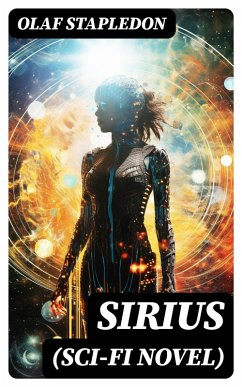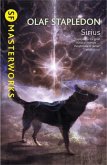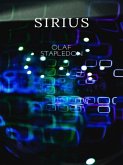In "Sirius," Olaf Stapledon weaves a profound narrative that explores the intersection of intelligence, identity, and the nature of being through the lens of a genetically enhanced dog named Sirius. Written in a style that blends poetic prose with philosophical inquiry, the novel is emblematic of Stapledon's innovative approach to science fiction, pushing the boundaries of the genre while delving into existential questions about humanity's ethical responsibilities. Set in a near-future reality where evolving intelligence challenges the status quo, the book invites readers to reflect on the societal implications of creation and consciousness, making it a seminal work in early 20th-century speculative fiction. Olaf Stapledon, a British philosopher and writer, was profoundly influenced by the socio-political upheavals of his time, including the aftermath of World War I. His unique background in philosophy and his commitment to exploring grand themes of existence and evolution shaped the conceptual underpinnings of "Sirius." Stapledon's vision for a world where sentient beings grapple with their identities resonated deeply with his philosophical concerns about progress and its discontents. This thought-provoking novel is recommended for readers interested in the ethical dimensions of science and the philosophical ramifications of artificially induced intelligence. "Sirius" not only offers an engaging narrative but also challenges readers to confront their beliefs about intelligence, empathy, and the potential futures that await humanity.
Dieser Download kann aus rechtlichen Gründen nur mit Rechnungsadresse in A, B, BG, CY, CZ, D, DK, EW, E, FIN, F, GR, H, IRL, I, LT, L, LR, M, NL, PL, P, R, S, SLO, SK ausgeliefert werden.
Hinweis: Dieser Artikel kann nur an eine deutsche Lieferadresse ausgeliefert werden.









